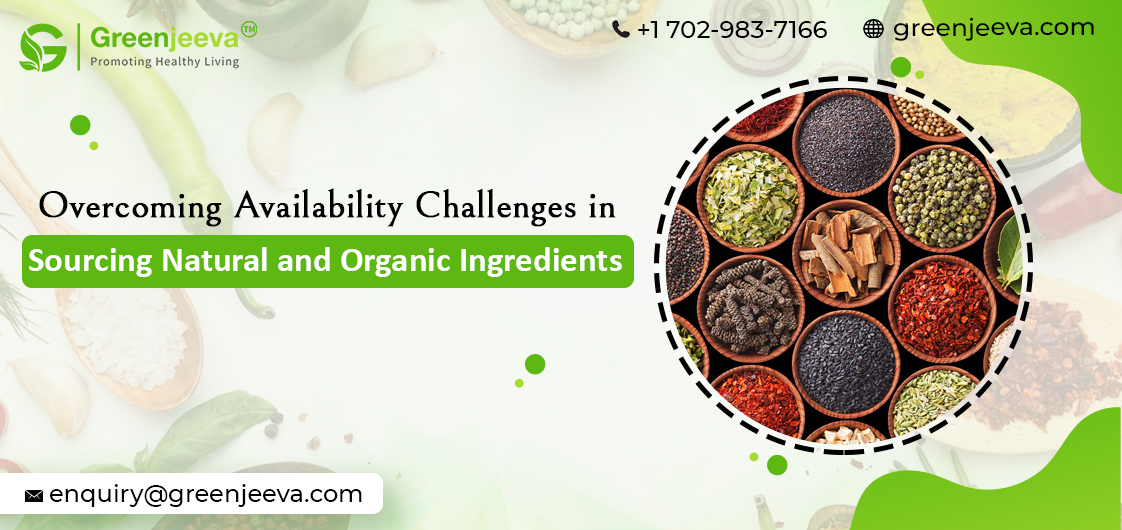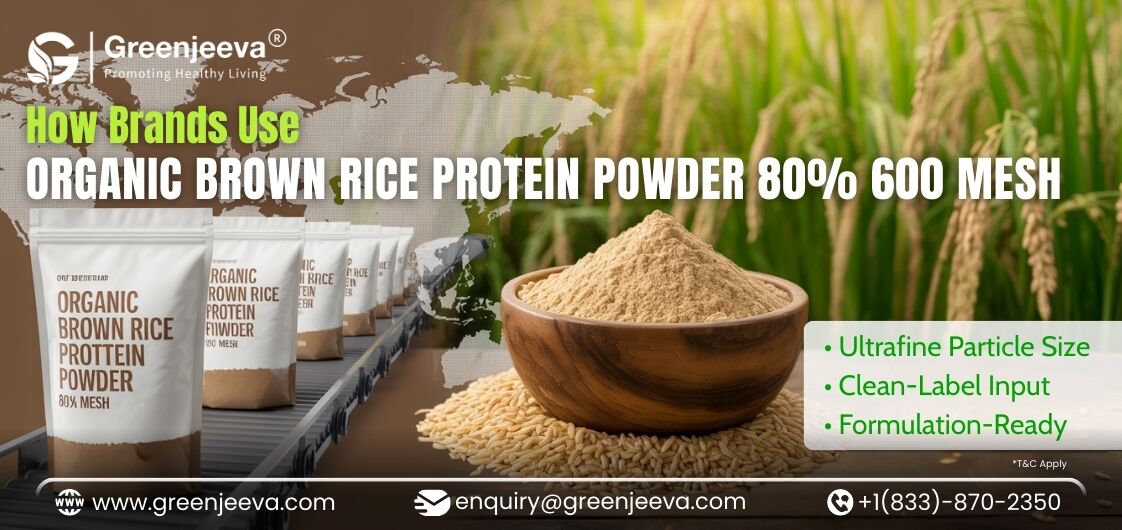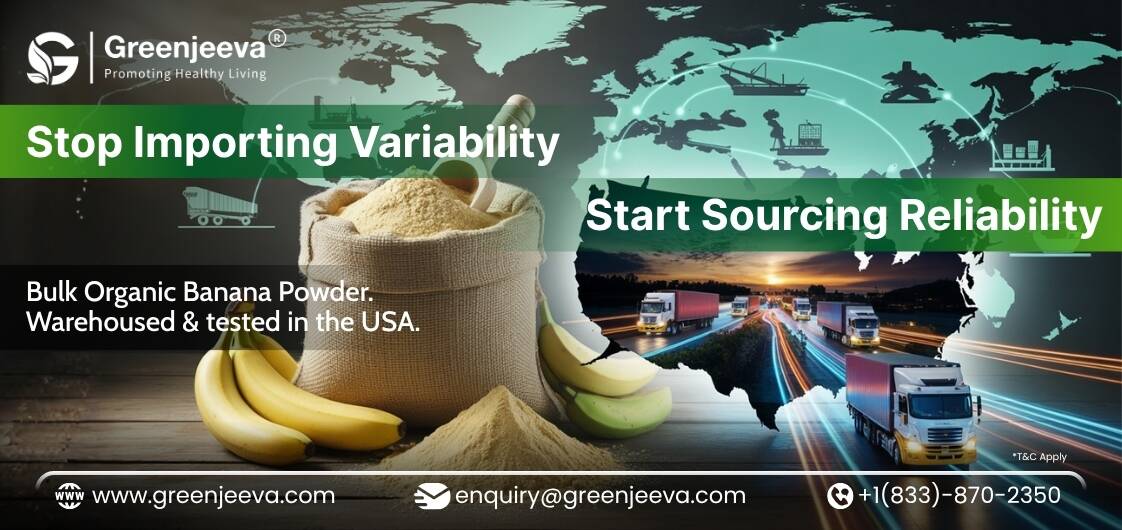Overcoming Availability Challenges in Sourcing Natural and Organic Ingredients

The natural and organic personal care product industry is thriving as consumers seek healthier and environmentally-friendly alternatives for their skincare needs.
However, manufacturers in this sector face significant challenges when it comes to sourcing the raw ingredients necessary for their products.
In this blog, we will explore the key challenges faced by manufacturers in sourcing natural and organic ingredients and discuss effective strategies to overcome these challenges.
Challenges in Sourcing Natural and Organic Ingredients
Limited Ingredient Availability
One of the primary challenges faced by manufacturers is the limited availability of natural and organic ingredients. The availability of ingredients can be influenced by regional biodiversity, cultivation practices, climate conditions, and seasonal variations.
Certain ingredients may only thrive in specific geographical areas, making it challenging to ensure a consistent supply throughout the year. Additionally, environmental regulations and sustainability considerations further impact the availability of certain ingredients.
Ensuring Authenticity and Quality
Maintaining the authenticity and quality of natural and organic ingredients is crucial for manufacturers. With the rising demand for these ingredients, there has been an emergence of counterfeit or adulterated products in the market.
This poses a significant risk to manufacturers who strive to deliver genuine and high-quality products to consumers.
Working with trusted suppliers who adhere to stringent quality control measures becomes imperative to ensure the authenticity, purity, and organic certifications of the ingredients used.
Navigating Complex Global Sourcing
Global sourcing adds another layer of complexity to the ingredient procurement process. Manufacturers must navigate diverse regulatory frameworks and certification processes across different countries.
Cultural practices and sourcing challenges specific to each region further complicate the sourcing process.
Building strong relationships with suppliers across various regions and understanding the intricacies of international sourcing practices are essential to overcoming these challenges.
Strategies to Overcome Availability Challenges
Establishing Resilient Supply Chains
To address limited ingredient availability, manufacturers can establish resilient supply chains. This involves developing diverse sourcing networks, collaborating with local farmers and cooperatives, and anticipating and managing seasonal variations.
By diversifying the sourcing channels, manufacturers can mitigate the risk of ingredient scarcity and ensure a steady supply of raw materials.
Partnering with Trusted Suppliers
Partnering with trusted suppliers, such as Green Jeeva, is crucial to ensure the authenticity and quality of natural and organic ingredients.
Manufacturers should conduct thorough supplier vetting and due diligence to verify the reputation, credibility, and adherence to quality control standards of potential suppliers.
This includes verifying the authenticity and purity of ingredients, as well as ensuring organic certifications are in place. Maintaining transparent and open communication with suppliers is vital to build trust and establish long-term partnerships.
Staying Updated on Regulatory and Certification Requirements
The landscape of regulations and certifications related to natural and organic ingredients is constantly evolving. To overcome sourcing challenges, manufacturers must stay updated on changes in regulations and compliance standards.
This can be achieved by actively monitoring industry developments, engaging with industry associations and certification bodies, and investing in ongoing education and training for procurement teams.
By staying informed, manufacturers can ensure their sourcing practices align with the latest requirements, thus minimizing potential obstacles.
Embracing Sustainable Sourcing Practices
Sustainability is a growing concern for consumers and manufacturers alike. Embracing sustainable sourcing practices not only addresses environmental concerns but also contributes to the long-term availability of natural and organic ingredients.
Manufacturers can prioritize sustainability in ingredient selection by considering factors such as responsible farming practices, supporting fair trade initiatives, and promoting environmentally-friendly cultivation methods.
By doing so, they not only enhance the sustainability of their supply chains but also align with consumer preferences for eco-conscious products.
Read More: https://www.greenjeeva.com/blog/sourcing-the-best-raw-ingredients-for-male-sexual-health-support
Conclusion
Sourcing natural and organic ingredients for personal care products presents significant challenges for manufacturers.
However, by understanding and addressing these challenges, manufacturers can ensure a consistent supply of high-quality ingredients while upholding their commitment to sustainability and consumer expectations.
By establishing resilient supply chains, partnering with trusted suppliers, staying updated on regulations, and embracing sustainable practices, manufacturers can overcome availability challenges and contribute to a healthier and more sustainable future for the industry.
At Green Jeeva, we are dedicated to sourcing natural and organic ingredients responsibly, ensuring their authenticity, quality, and sustainability.
As a trusted supplier, we understand the importance of overcoming these challenges and are committed to supporting manufacturers in their journey toward creating exceptional personal care products that prioritize both health and the environment.
Together, let's overcome these challenges and foster a more sustainable and conscious personal care industry.
**These statements have not been evaluated by the Food and Drug Administration. This product is not intended to diagnose, treat, cure or prevent any disease.**


.jpg)



.jpg)